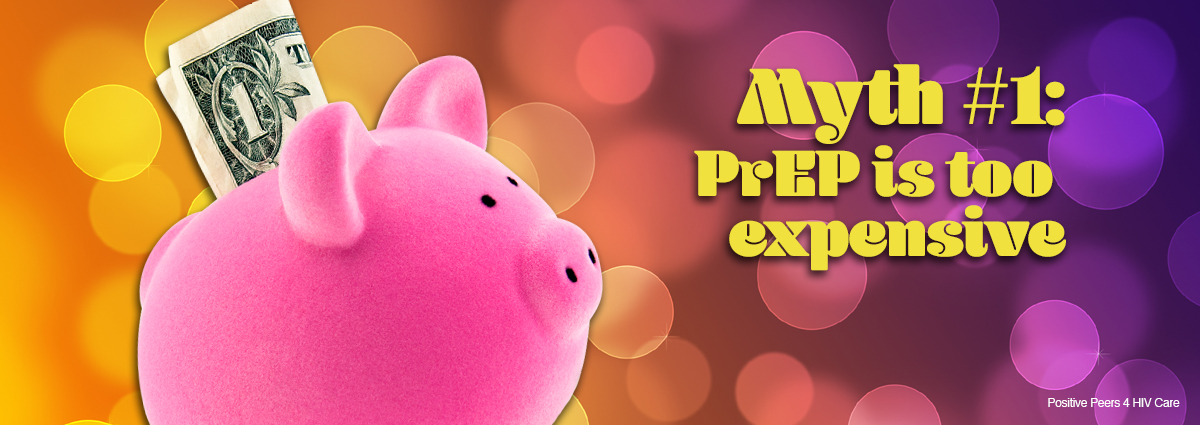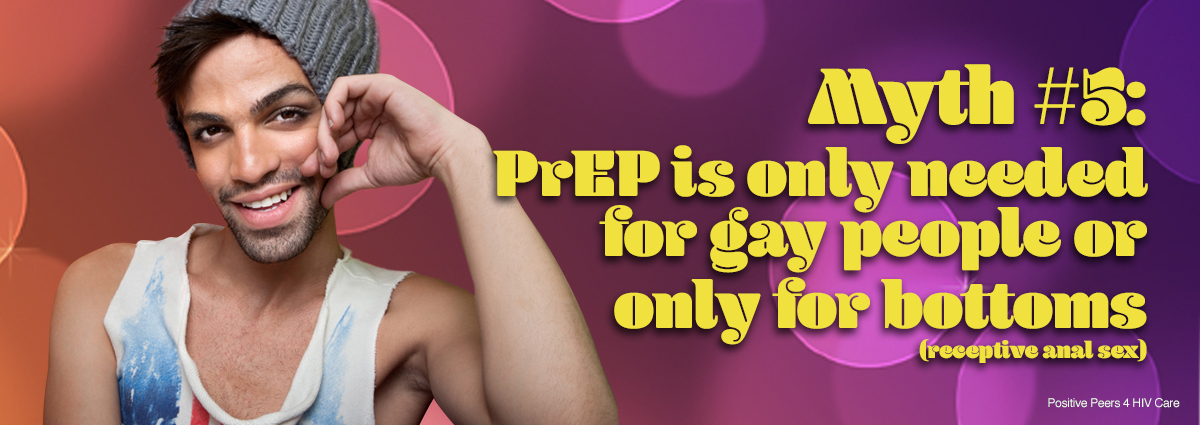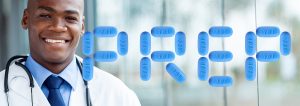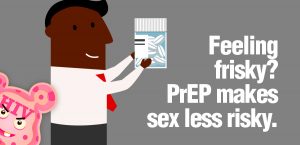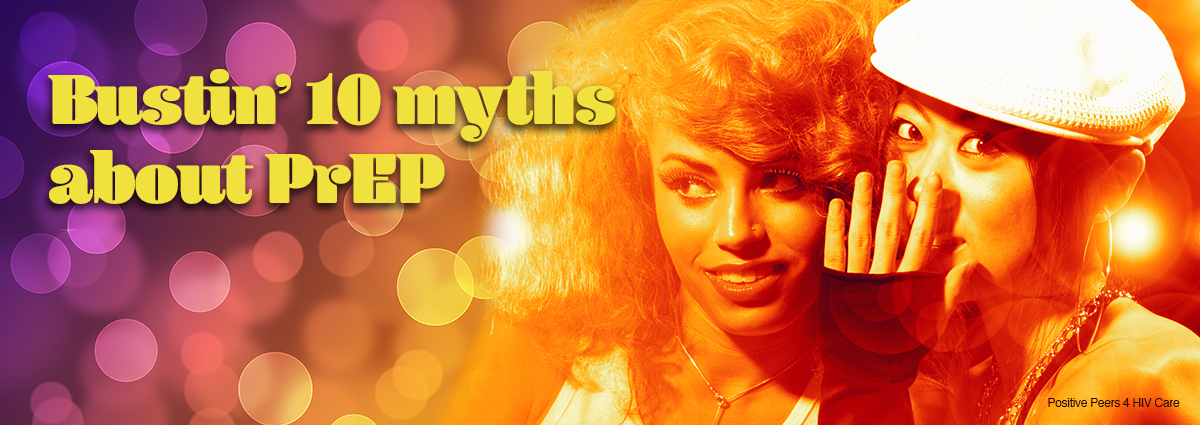
By: Ann K. Avery, MD, Infectious Disease Physician at MetroHealth Medical Center
When it comes to PrEP, there’s a ton of misinformation out there. PrEP is taking the medication, Truvada, once a day to reduce your chances of HIV infection by 90 to 99 percent. It’s possible you’ve seen commercials on TV for the name brand PrEP pill, Truvada.
So where does PrEP get its name? It stands for pre-exposure prophylaxis. Pre means before, exposure means having contact with HIV, and prophylaxis is a way to prevent an infection from occurring.
It’s important to keep in mind that PrEP isn’t necessarily for everyone. It doesn’t cure HIV and won’t work by itself for people who live with HIV. It’s a pill for people who are HIV negative and at risk of HIV infection.
Myth #1: PrEP is too expensive
Truvada, the medication you take for PrEP, has a retail cost of about $2,000 a month, but you probably won’t ever pay full price for it. Many private insurance plans, along with Medicaid, cover PrEP.
Gilead, the company that makes Truvada, has a few different assistance programs to make sure everyone has access to PrEP. If you’re uninsured or need financial assistance to pay for PrEP, you can apply to their patient assistance program. Gilead also has a co-pay coupon card to help you save money on PrEP-related co-pays. A lot of people pay next to nothing out-of-pocket for it.
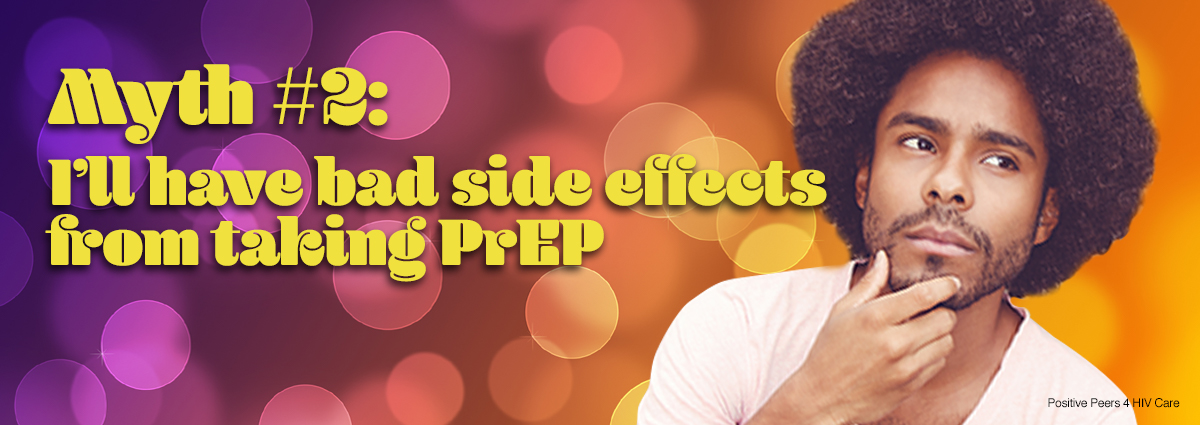
Myth #2: I'll have bad side effects from taking PrEP
A lot of people on PrEP have no side effects. Some do, but most side effects people have are mild and only last from just a few days to a few weeks. Headaches, nausea, weight loss, and dizziness are the most common.
There are rare side effects that happen to some people taking PrEP, such as a decline in kidney function or bone density although it’s never been associated with breaks or fractures. Still, it’s important to keep up with your labs as ordered by your provider so that if this starts happening to you, it will be caught early. These symptoms go away after you stop taking PrEP.
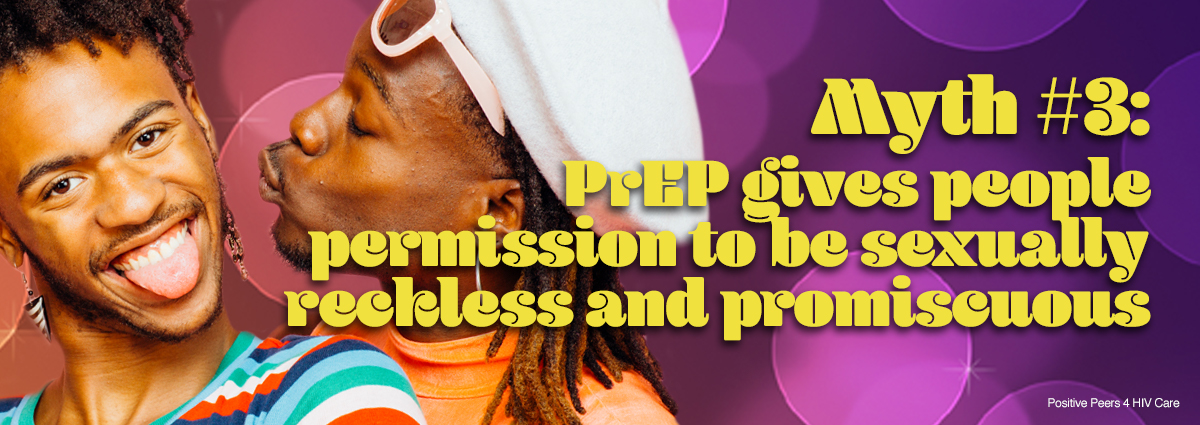
Myth #3: PrEP users are sluts. PrEP gives people permission to be sexually reckless and promiscuous
It’s never okay to sex-shame someone for any reason. Everyone has agency over their bodies and should be able to do what they want with it as long as they have proper consent. SEX IS NATURAL. Taking PrEP is just a way that helps empower people to put their health first and protect themselves from HIV.
The other benefit of taking PrEP is that you’ll be getting tested and seeing a health provider every 3-6 months. Since a lot of STIs don’t have symptoms right away, following through on your PrEP care means you’re more likely to catch and treat them early.
Now that we have more ways to make sex safer, why not encourage people to have sex as smartly as possible rather than shame them for it?
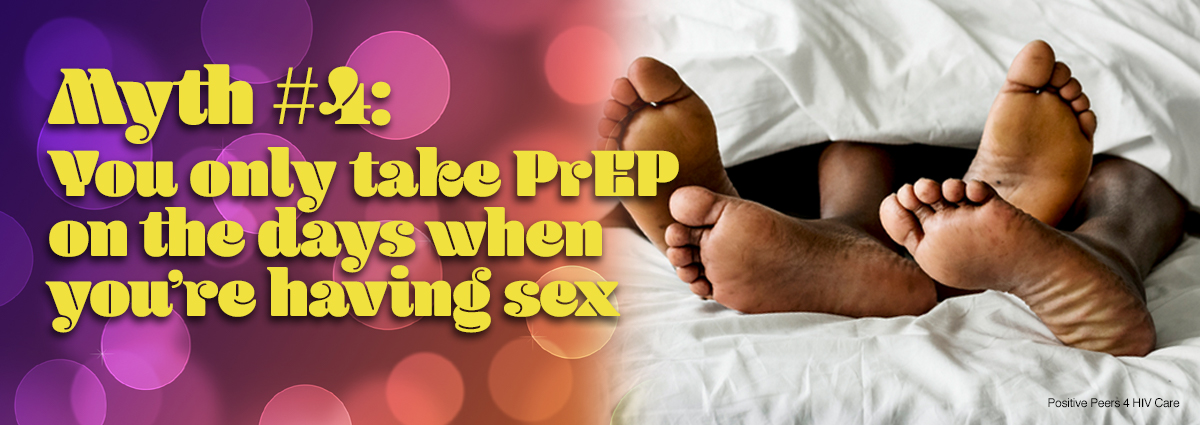
Myth #4: You only take PrEP on days when you are having sex
This is the last thing you should do! PrEP won’t protect you as effectively if you don’t take it every day. Taking it less than prescribed will increase your risk of HIV if you are exposed.
Myth #5: PrEP is only needed for gay people or only for bottoms (receptive anal sex)
Risk of HIV doesn’t discriminate when it comes to your sexual orientation or sex position. This kind of thinking is old-fashioned and inaccurate. What puts people at risk for HIV are things like:
- Being sexually active
- Having more than one partner
- Partners with unknown HIV statuses
- Not using condoms and other risk reduction methods
- Having a sexually transmitted infection currently or recently
Notice how none of these things mention position, gender identity, or sexual orientation? Exactly our point. Now, taking PrEP will help protect you from HIV so why not take it if it makes sense for you?
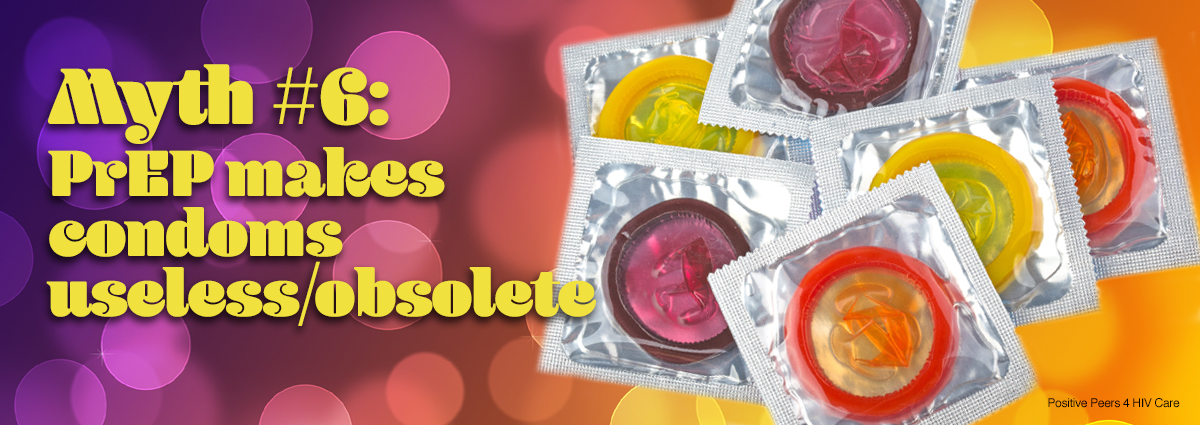
Come join our private, stigma-free, supportive community.
Health management tools with medication & appointment reminders.
Social networking in a community conversation & private chats.
Myth #6: PrEP makes condoms useless/obsolete
It’s true that taking PrEP reduces the risk of HIV by up to 99%, but it isn’t able to protect against other sexually transmitted infections (STIs) like Syphilis and gonorrhea. Using condoms, talking with your partner(s) about their sexual health and history, and using other risk-reduction methods are the only ways to protect against other sexually transmitted diseases. Condoms are great and will reduce your risk of HIV, STIs, as well as protect against pregnancy if that’s a concern for you.
Remember, having proper consent and talking with your partner about your health and sexual history will help create a stronger bond between you, and likely make sex even better!
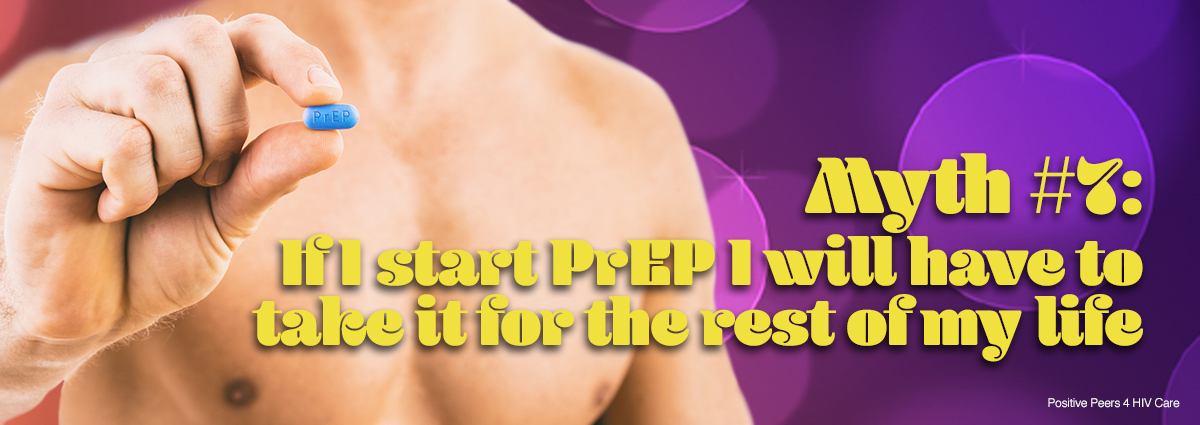
Myth #7: If I start PrEP I will have to take it for the rest of my life
It’s okay to talk with your doctor about stopping PrEP if you don’t think you need it anymore. For example, if you are single now but find yourself in a monogamous relationship next year with a partner who is HIV negative, then you can absolutely stop taking PrEP and restart it if/when you ever need it again.
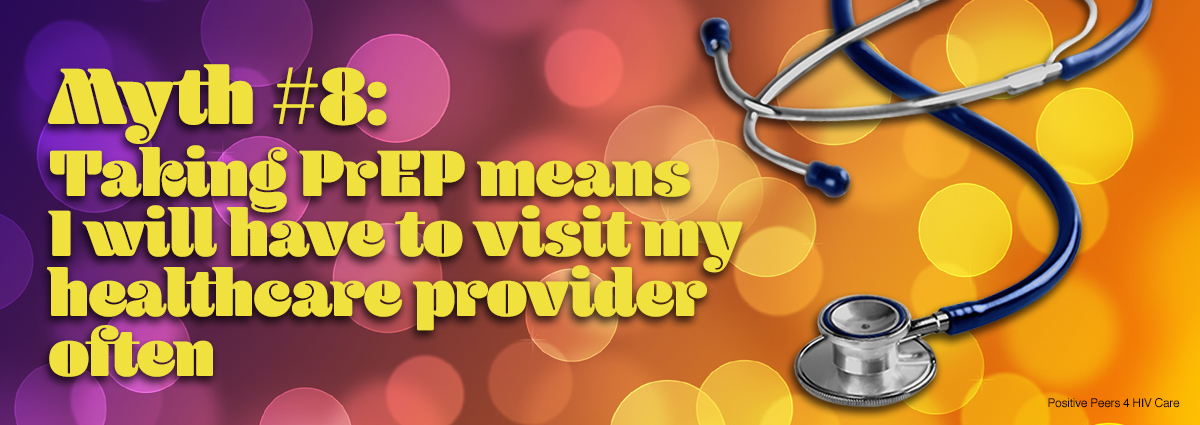
Myth #8: Taking PrEP means I will have to visit my healthcare provider often
Before your doctor writes you a prescription for PrEP, you have to be screened to see if you’re eligible for it. Once you start taking it, you will see your doctor every 3-6 months or so. These follow-ups are quick and easy to schedule. Some places even offer to do your appointments over Skype or something similar. Starting PrEP won’t mean you will have appointments all the time.
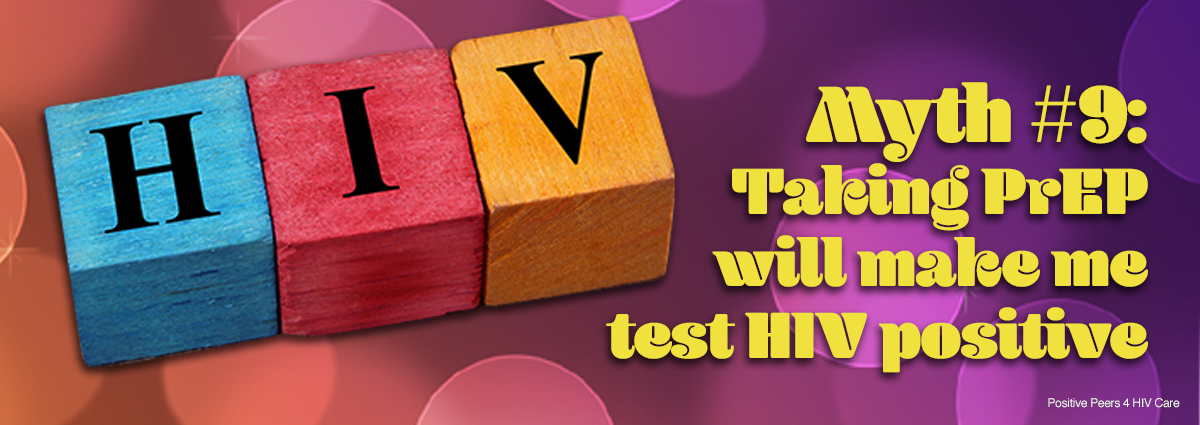
Myth #9: Taking PrEP will make me test HIV positive
It’s only possible to test positive for HIV if you’ve been infected with HIV. Being on PrEP won’t make you test HIV positive.
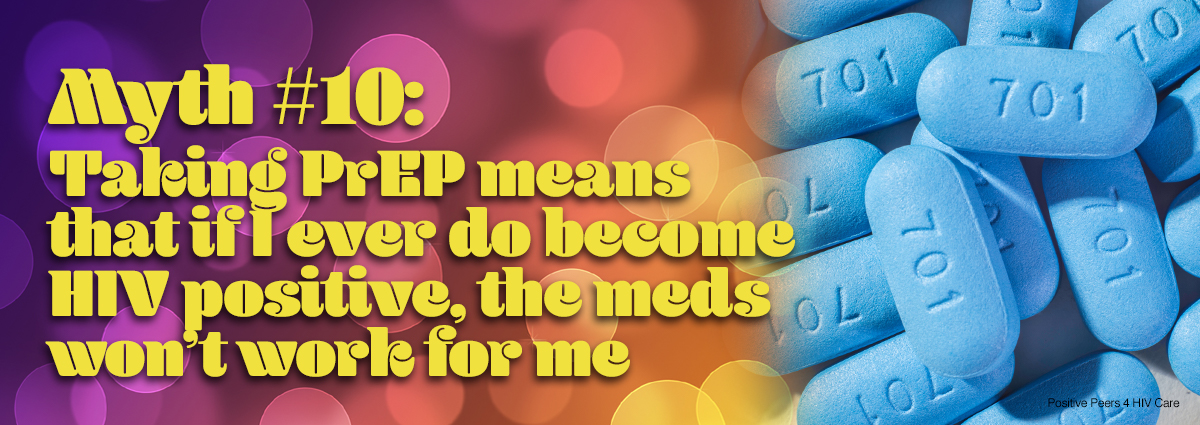
Myth #10: Taking PrEP means that if I ever do become HIV positive, the meds won't work for me
Something to keep in mind is that if you’re living with HIV but test negative at your first PrEP appointment, there’s a small chance you could develop a resistance to the drugs in PrEP. This is rare and hasn’t been an issue for most people. If this happens though, have no fear! There are plenty of other meds that can be used to treat HIV with more coming out every year it seems.
Conclusion
We hope this blog helped debunk a lot of common myths about PrEP! Having knowledge about PrEP empowers you to have a happy, healthy, and sexual life.
Related Blogs:
